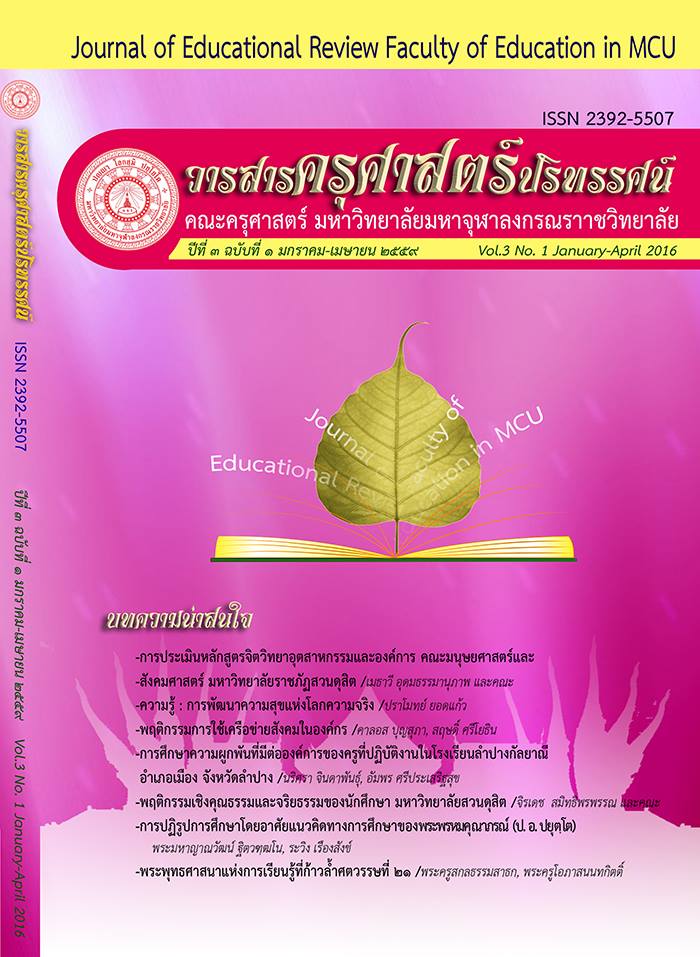Community Participation In Buddhist-Based Educational Management
Main Article Content
Abstract
Aparihaniya Dhamma is to prevent deterioration and lead to prosperity. To
hold regular meetings and to meet together in harmony, disperse in harmony and
do the business and duties of the Order in harmony are powerful. According to the
National Education Act B.E. 2542, all sectors of society; individuals, families,
communities, organizations, communities, local governments, priv ate organizations,
professional organizations, religious organizations and other social institutions, have
the rights in managing education. This system can strengthen the community by
community learning process to let community in study, management and training in
accordance with the need of community. By this way, the community learning
process can be improved effectively.
Article Details
ทัศนะและความคิดเห็นที่ปรากฏในบทความในวารสารฉบับนี้ถือเป็นความรับผิดชอบของผู้เขียนบทความนั้นเพียงผู้เดียว และไม่ถือเป็นทัศนะและความรับผิดชอบของกองบรรณาธิการ
กองบรรณาธิการขอสงวนสิทธิ์ในการคัดเลือกบทความลงตีพิมพ์และจะแจ้งให้เจ้าของบทความทราบหลังจากผู้ประเมินบทความตรวจอ่านบทความแล้ว
ต้นฉบับที่ได้รับการตีพิมพ์ในวารสารครุศาสตร์ปริทรรศน์ คณะครุศาสตร์ มหาวิทยาลัยมหาจุฬาลงกรณราชวิทยาลัย ถือเป็นกรรมสิทธิ์ของคณะครุศาสตร์ มหาวิทยาลัยมหาจุฬาลงกรณราชวิทยาลัย ห้ามนำข้อความทั้งหมดหรือบางส่วนไปพิมพ์ซ้ำ เว้นเสียแต่ว่าจะได้รับอนุญาตจากมหาวิทยาลัยฯ เป็นลายลักษณ์อักษร


